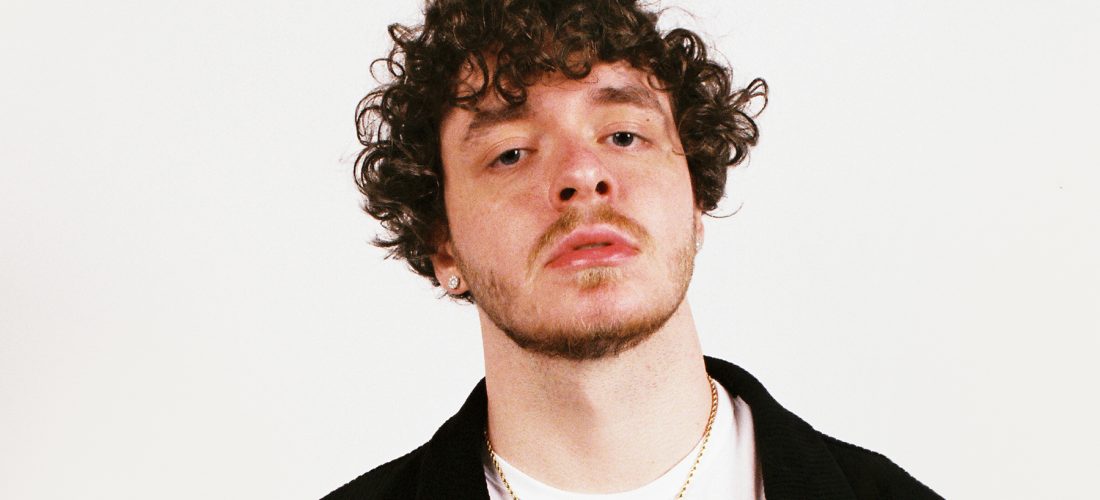Jack Harlow’s ‘Thats What They All Say’ Is a Louisville Love Letter
When Jack Harlow was 16, he looked and sounded exactly like Andy Samberg. On “S.A.V.,” a track from his maiden high school mixtape Finally Handsome, his raps were self-deprecating and aspirational in the same breath: “Spend my whole spring break scrolling down Instagram/ Double-tapping pictures of these girls in their bikinis/ I’m jealous, but I know the whole world is gonna see me one day.”
Six years later, few humans are enjoying a more successful 2020 than Harlow. His single “Whats Poppin” hit Number Two on the charts and hasn’t left the Hot 100 since February, and he participated in the year’s second-most iconic jersey swap, with Tyler Herro. In the opening lines of his debut album and official coming-out party Thats What They All Say, he celebrates with good cause, and with a well-calibrated balance of pride and nonchalance. “I became exactly what I wanted to,” he boasts, “I became a millionaire at 22.” He’s got girls from West Virginia to Cape Town signing NDAs and sipping Big Red. Jack Harlow has come a long way.
On Thats What They All Say, Harlow wallows in his newfound fame, raises the guardedness necessary to maintain sanity as a celebrity, and reps Louisville like his life depends on it. He is a hundred times funnier on Instagram than on wax, but his writing is clean, clever, and heartfelt. His aesthetic has absolutely zero regional bearing, and the fact that his music sounds like it could come from any city in America makes his Louisville-forward lens on the world the most compelling element of the album. He craves mint juleps and hot browns and name-drops his favorite combination deli-liquor store. He grabs features from Louisville artists Bryson Tiller, EST Gee, and the late Static Major. He holds his own against a monster Lil Baby verse on the high-octane standout “Face of My City,” and he apparently regards clubbing with the Louisville Cardinals basketball team as a stronger flex than kicking it with Lou Williams at Magic City.
Harlow used his XXL Freshman freestyle to honor one-man Louisville barbecue institution David McAtee, whom police killed during this summer’s George Floyd and Breonna Taylor protests; once again, on Thats What They All Say, Louisville becomes a lens for him to try and fulfill his duties as a white rapper and parse the racial friction that comes with the territory.
“I’m from the white side like Hassan,” he raps on “Route 66.” On “Baxter Avenue,” named for a local thoroughfare, he reflects on his relationship with his predominately Black clique Private Garden: “Always wondered to myself if I could really be a leader of a group of brown-skinned boys when I’m not brown-skinned / Certain things they grew up on that they get but I don’t get / Differences in how we raised make me feel like I don’t fit / Not to mention the distance between our parents’ houses.” Building a career as a white rapper is like playing a video game on “easy” mode. Harlow owns that.
Harlow could easily settle into a lane as a commercially viable, affable, laid-back party rapper, but stylistically, he’s less interested in being Louisville’s G-Eazy than Louisville’s Drake. As Harlow takes numerous trips down childhood memory lane and muses on his own celebrity, as well as on the fleeting romances he’s scattered around the country, the influence of Aubrey Graham’s brooding, diaristic style looms large. On the Harry Fraud-produced “Keep It Light,” Harlow does a remarkable job at expressing the precise frustrations of fake friends showing fake love to him, straight up to his face. “Baxter Ave” closely follows the clear-eyed, one-verse blueprint of Drake’s “9 AM in Dallas” and its sequels. There are moments on “Whats Poppin” where it literally sounds like Drake punched in and started rapping on his behalf. Harlow doesn’t possess Drake’s capacity for pettiness, nor his obsequious attitude towards athletes, nor his singing gifts, but there are enough parallels between them that Thats What They All Say provokes the question: is Drake Jack Harlow’s jumping-off point or his artistic ceiling? He put Louisville rap on the national radar for the first time in a generation, and his music is strongest when he keeps it close to home.
